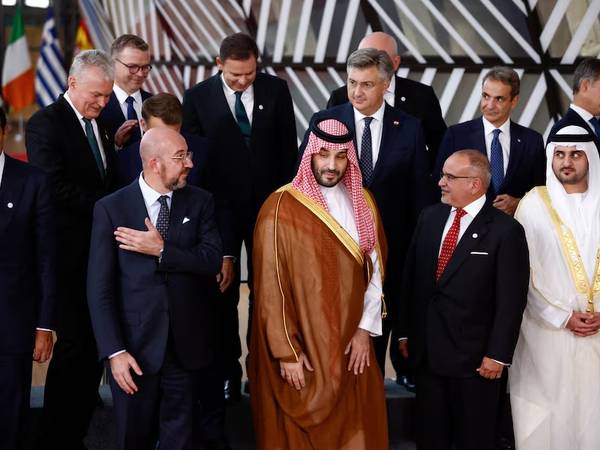The Gulf Cooperation Council (GCC) and the European Union (EU) have jointly urged Iran to relinquish control of three Persian Gulf islands, which it has held since 1971 following Britain's withdrawal from the region.
The joint statement, issued on Wednesday during the first EU-GCC summit in Brussels, urges Iran to end its control of Greater Tunb, Lesser Tunb, and Abu Musa, islands claimed by the United Arab Emirates (UAE) after it gained independence following Britain's withdrawal.
"We call on Iran to end its occupation of the three islands of the United Arab Emirates, Greater Tunb, Lesser Tunb, and Abu Musa, which constitutes a violation of the sovereignty of the UAE and the principles of the Charter of the UN," the statement read.
Iran quickly dismissed the accusations. Abbas Araghchi, Iran’s foreign minister, took to social media, condemning the joint EU-GCC statement. “The three islands have always belonged to Iran and will forever remain as such. Era of European malign 'divide & rule' interference in our region is long over,” Araghchi posted on X.
Iran asserts that the islands have always been part of its territory, maintaining that it has never relinquished ownership. On the other hand, the UAE contends that the islands were under the control of the Qasimi sheikhs throughout the 19th century, with these rights subsequently passing to the UAE in 1971.
The islands were placed under British control in 1921, but on November 30, 1971, just one day after British forces withdrew and two days before the UAE officially became a federation, Iran's then-monarch, Mohammad Reza Shah, dispatched the Iranian navy to seize control of all three islands. Iranian forces remain stationed there to this day, with Abu Musa being the only island with a civilian population, numbering fewer than two thousand.
Arab nations have frequently voiced support for the UAE's claims, but the EU’s backing of this stance marks a significant shift in European policy. The statement aligns with growing international pressure on Iran with sanctions being imposed globally for its ongoing nuclear program, rights abuses at home and ongoing support for Russia’s invasion of Ukraine.
Esmail Baghaei, spokesperson for Iran’s Ministry of Foreign Affairs, also rejected the EU-GCC claims. “This is a clear indication of the member states' lack of commitment to the principles and objectives of the United Nations Charter, especially the principle of respect for national sovereignty and the territorial integrity of states,” Baghaei said.
Tensions over the islands have been exacerbated by international interventions. In June, China supported the UAE’s claims during a meeting with Emirati officials, prompting a rebuke from Tehran. Similarly, Russia’s backing of the UAE in December drew an angry response from Iranian authorities.
The joint EU-GCC statement also emphasized the broader security concerns linked to Iran’s regional actions with its proxies currently engaged in a joint front against Israel as well as enacting a blockade on global shipping.
The statement called for Iran to halt its advancing nuclear program, which has raised alarms over potential weaponization, and demanded a cessation of missile and drone production, citing threats to regional and international peace. "We stress the importance of ensuring the peaceful nature of the Iranian nuclear program," the statement read.
Additionally, the statement underscored the need for Iran to comply with international obligations under the Treaty on the Non-Proliferation of Nuclear Weapons (NPT). Both the GCC and the EU expressed disappointment over the progress of Iran's nuclear program in the last five years.
“We regret that Iran’s unabated nuclear advances over the last five years have made a return to the JCPOA increasingly difficult,” the statement added, further urging Tehran to pursue regional de-escalation and non-interference in neighboring countries’ internal affairs.
This year, the head of the UN's nuclear program, Rafael Grossi, warned Iran is "weeks not months" away from a nuclear weapon, as Tehran has barred a third of their nuclear inspectors.
